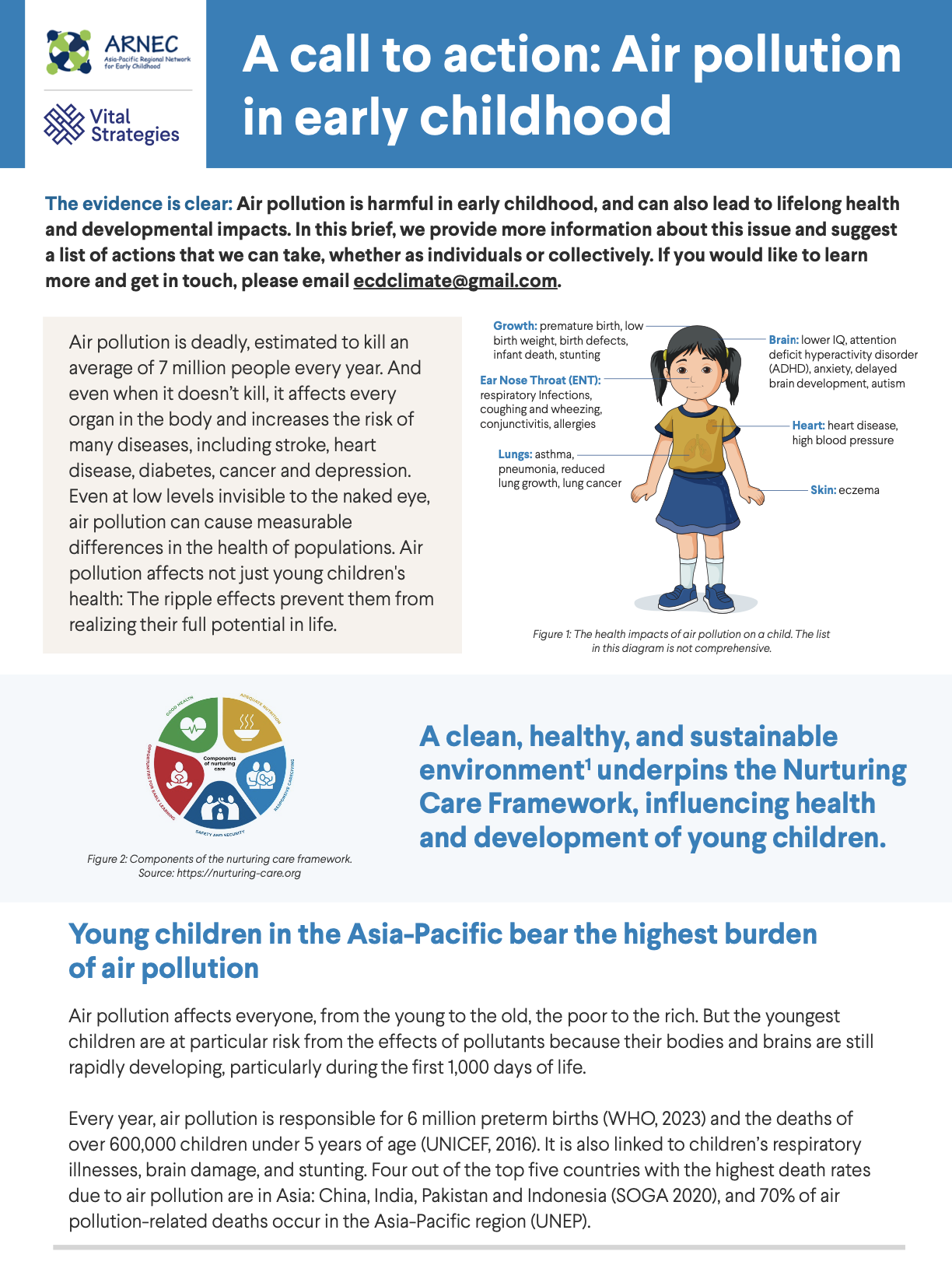Every year, air pollution is responsible for the deaths of over 600,000 children under 5 years of age (UNICEF, 2016). Air pollution is especially harmful to young children as their bodies and brains are still developing, and they lack the natural defence mechanisms to fend off harmful pollutants. They also breath up to five times faster than adults, and with every breath, take in more air per unit of body weight than adults. Exposure to air pollution in early childhood can lead to lifelong health and developmental impacts, including reduced lung capacity, stunting, lower IQ and depression.
Vital Strategies has partnered with the Asia-Pacific Regional Network for Early Childhood Development (ARNEC) to publish this advocacy brief to highlight the specific risk that air pollution poses to young children, and a list of actions that we can all take to reduce this risk.
This publication is the first in a series and part of a resource kit on Climate and Environmental threats on early childhood development. To learn more, please email ecdclimate@gmail.com
Download the full advocacy brief (10 pages)
Download the call-to-action only (2-pager)
Recent Abstracts
Foundations & Futures: Reimagining Public Health in the Artificial Intelligence Era
Strengthening Health Systems to Address Air Pollution in Ethiopia
Policy Brief: Childhood Blood Lead Surveillance in Indonesia – Findings and Policy Recommendations
Impact of Blue Lanes on Road Safety: Crashes, Speed and Motorcyclists’ Perceptions in…
Impacto da Faixa Azul na Segurança Viária: Sinistros, velocidade e percepções de motociclistas…
Culture is Medicine- a Model of Indigenous Harm Reduction in Practice
Trouble Brewing – The Case for Alcohol Policy (Second Edition)
Lessons from Vietnam’s Campaign for a Tax on Sugar-Sweetened Beverages
Principles of Alcohol Taxation
Clean Air in Jakarta: Gaps and Possibilities Toward Low Emission Practices
